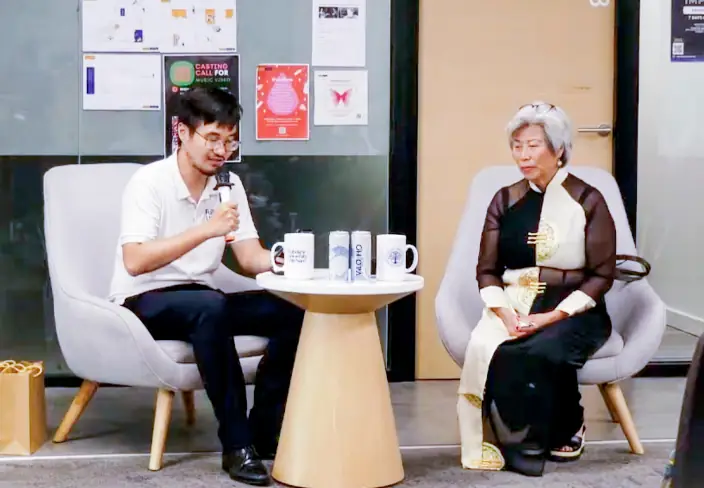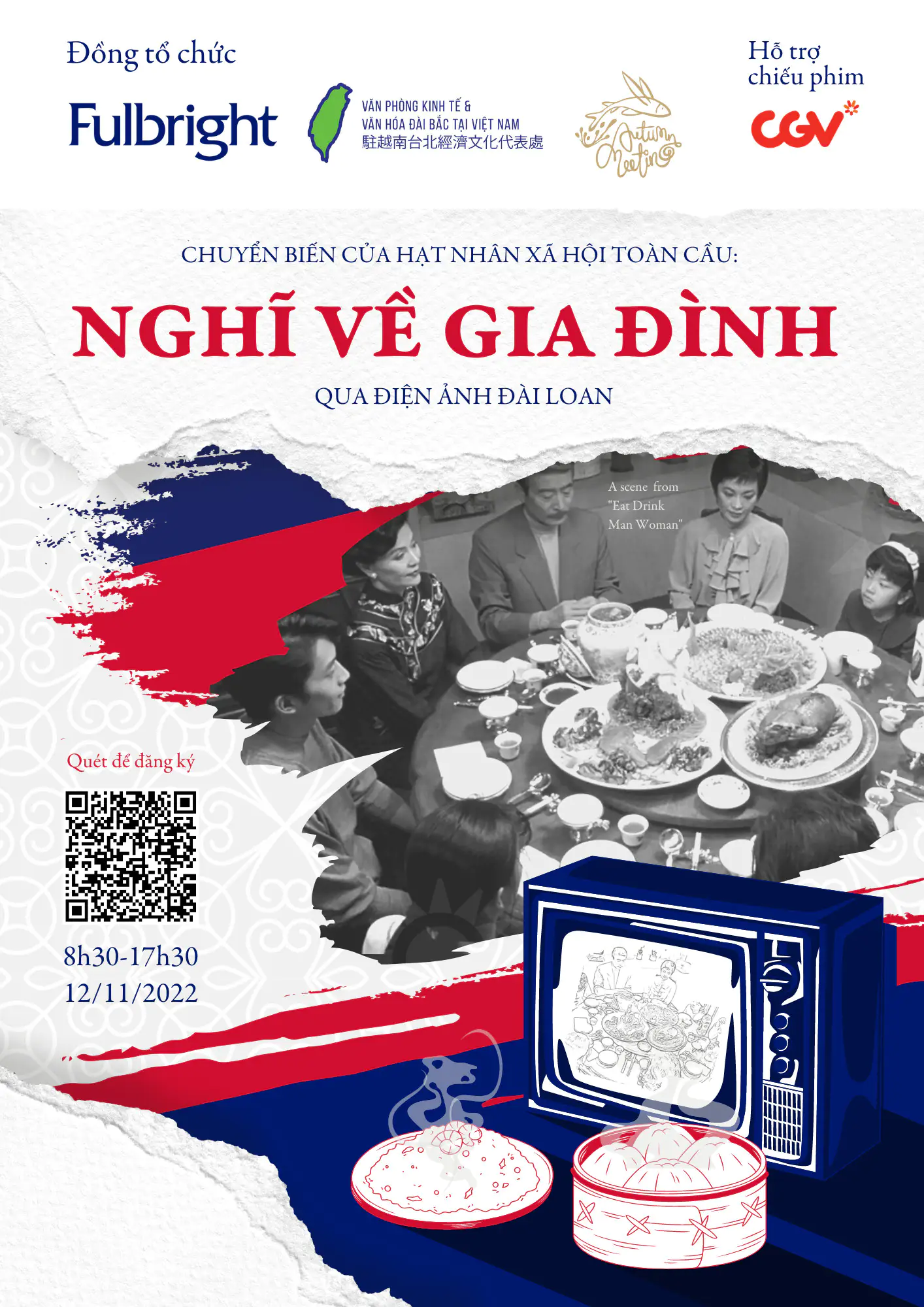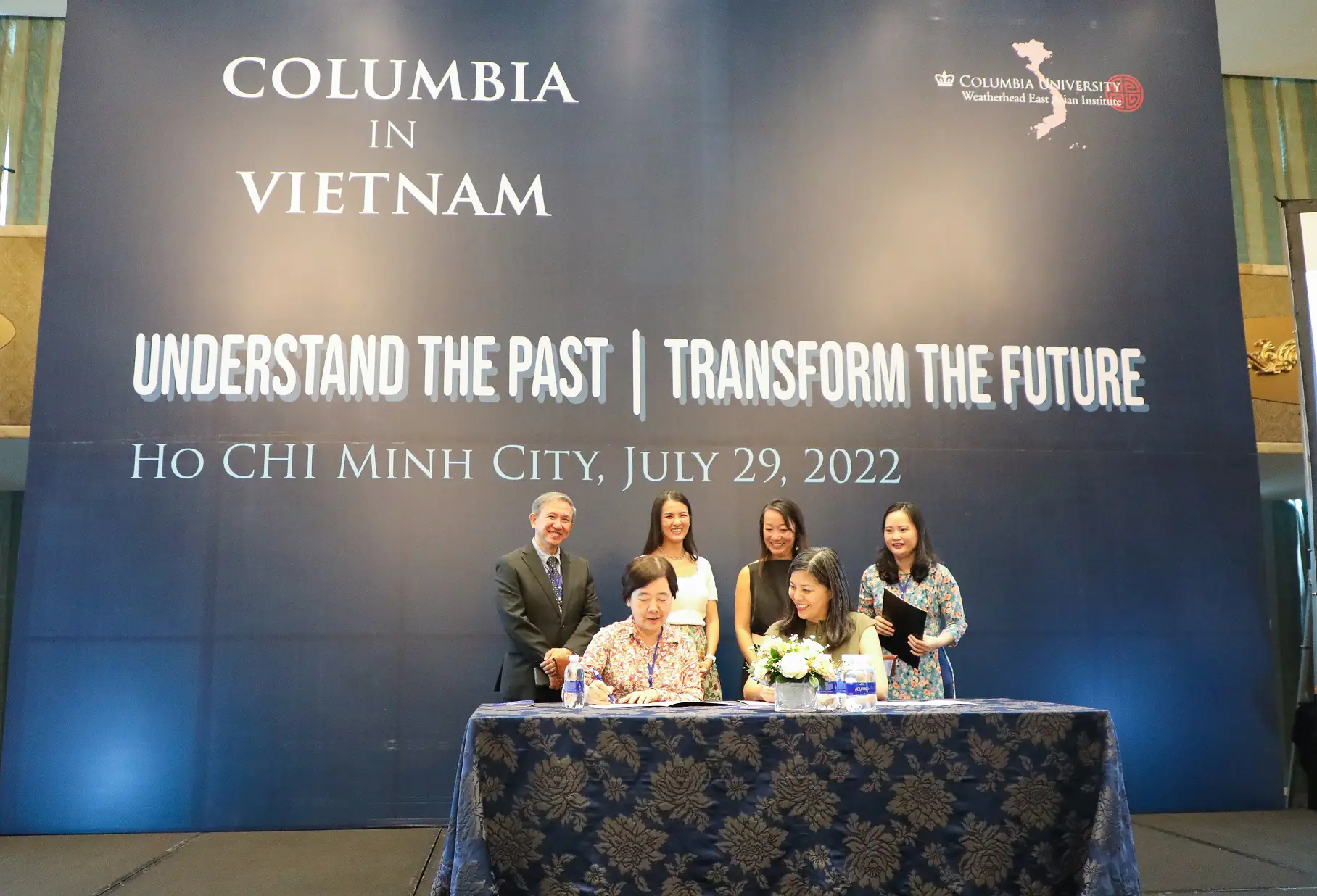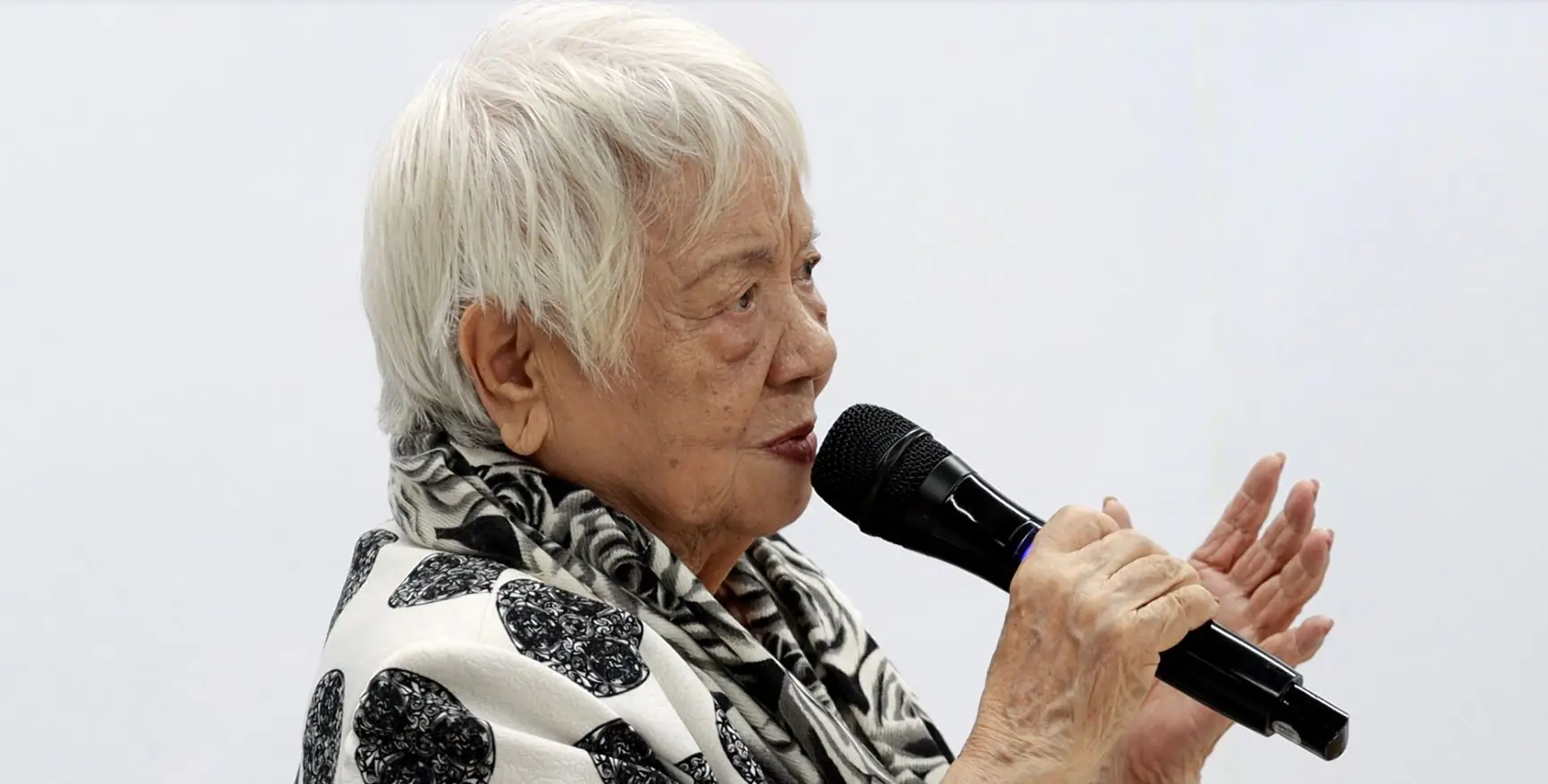Over the past thirty years, Vietnam Studies has expanded enormously and thrived both in Vietnam and in research institutes and universities in Asia, Europe, North America, and Australia. Contemporary Vietnam Studies has moved beyond colonial and Cold War paradigms and preoccupations to examine the country and its multidimensional features throughout history and in contemporary time in both regional and global contexts.
A strong Vietnam Studies major has always been integral to the original vision of the founders of Fulbright University Vietnam. Vietnam Studies includes scholarly research in Han-Nom, French, and quốc ngữ texts, materials, and sources, as well as critical examinations of Vietnamese politics, society, culture, and economy. Scholarly work in Vietnam Studies is by nature interdisciplinary, and includes not only the study of people, communities, and institutions within the national territory of Vietnam, but also the Vietnamese diaspora and Vietnam in regional contexts of East and Southeast Asia.
The Vietnam Studies Major is designed for any student, regardless of their national or ethnic origin, who wants to pursue the study of Vietnam from multiple critical perspectives.
Vietnam Studies is an interdisciplinary field in which scholars and students draw upon the theory and methods of various disciplines (including humanities, social sciences, and natural science fields) to fashion transdisciplinary approaches to the study of Vietnam. Advanced (300-level) courses will help VS students build expertise in areas including Vietnam and Area Studies, Ethnohistory, International Relations, Interdisciplinary Economics (e.g., environmental economics, or heritage economics), Cultural Studies, Education, Digital Humanities, and Vietnamese Literature and Film. Additionally, VS students are encouraged to take up minors or double majors in the other fields offered at Fulbright.
Because Vietnam Studies is an area studies field, Vietnam Studies majors will learn to situate Vietnam in regional and global contexts. VS students will also gain the ability to study Vietnam in comparative perspective, so that they can think more critically and constructively about Vietnam’s connections to the rest of the world.
All Vietnam Studies majors are required to study one or more relevant language, besides English and Vietnamese, that can be used to conduct advanced research on Vietnam. Depending on a student’s background and interests, the languages that may fulfill this requirement include modern Vietnamese in quốc ngữ (if Vietnamese is not their mother tongue), classical or modern Chinese, Nôm script, or a reading knowledge of modern French.
In keeping with Fulbright University Vietnam’s commitment to experiential learning, service learning, and educational exchange, Vietnamese Studies majors will connect their classroom studies to “real world” learning activities such as field study trips, community engagement activities, student exchange programs, and connected courses offered jointly with other universities.
In earning a Fulbright bachelor’s degree in Vietnam Studies, strengthened by a specific disciplinary focus, plus language and interpersonal skills, students can confidently pursue a wide variety of careers where Vietnam stands at the center of an international network. For instance, they can work in the arts (including performance art and cinema), journalism, cultural and educational organizations, or research institutes. They can also work for economic, diplomatic, or international institutions; tourism and commercial companies; and/or (non-)governmental organizations in Vietnam or overseas that require both broad and deep knowledge of the country. Vietnam Studies graduates will also be prepared for graduate programs with a specific focus on Vietnam and related fields in universities around the world.
Vietnam Studies
Vietnam Studies at Fulbright
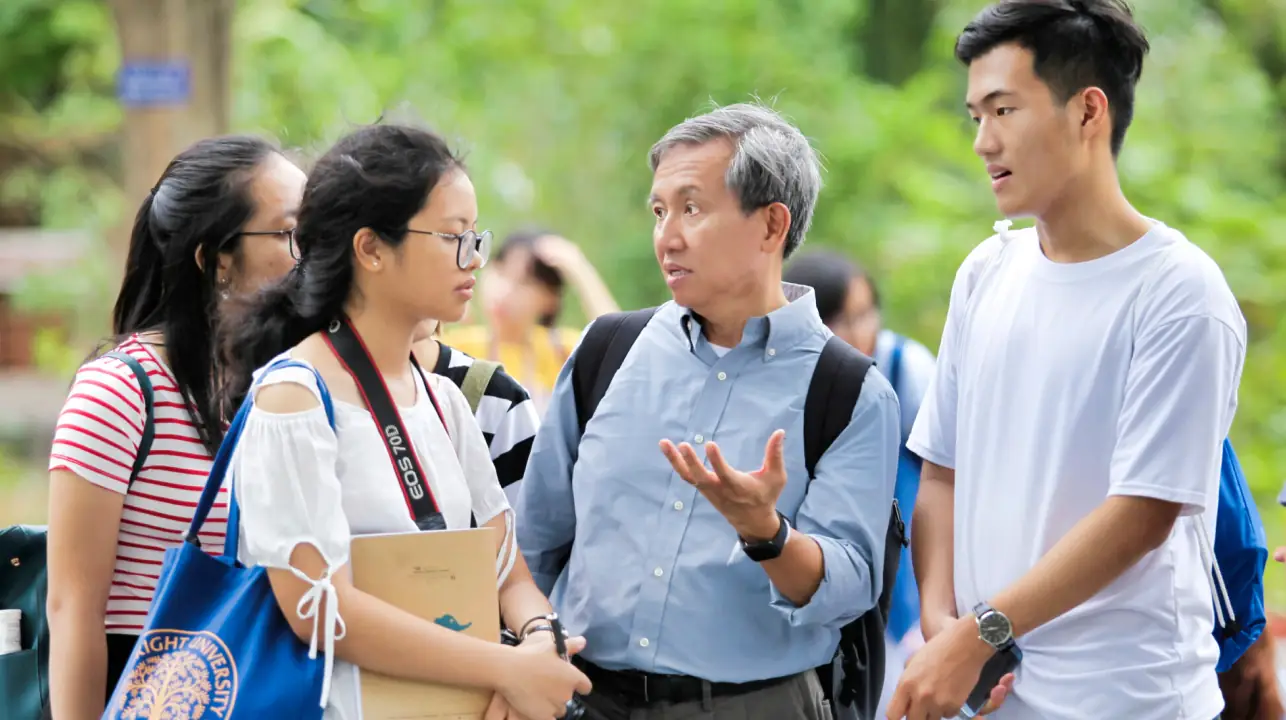
Welcome to the Vietnam Studies Major at Fulbright!
We promote multifaceted and interdisciplinary research and study into global Vietnam. Vietnam Studies Majors learn to situate Vietnam in regional and global contexts, so that they can think more critically and constructively about Vietnam’s connections to the rest of the world.
We have gathered a great concentration of internationally renowned, world-class experts in the field of Vietnam Studies right here in Ho Chi Minh City, both as permanent and visiting faculty and as visiting scholars who regularly share their cutting-edge research and expertise with our community. Our students come from many different disciplinary backgrounds and interests, united by their common passion for employing these different methods to understanding the Vietnam deeply and holistically.
We aim to be the most happening major on campus with many classes, events, conferences, activities, specialized facilities, and funded independent research opportunities. Taking Vietnam as our center, we are unabashedly international, having offered many connected classes, workshops, and faculty and student exchange partnerships with top U.S., U.K., and continental European universities. We actively cross-list our courses with other majors and promote boundless learning across the institution and the world, in the Vietnamese liberal arts spirit of the Tonkin Free School.

For more information about the Vietnam Studies major, please contact our Major coordinator at nicolas.weber@fulbright.edu.vn
Academic spotlight
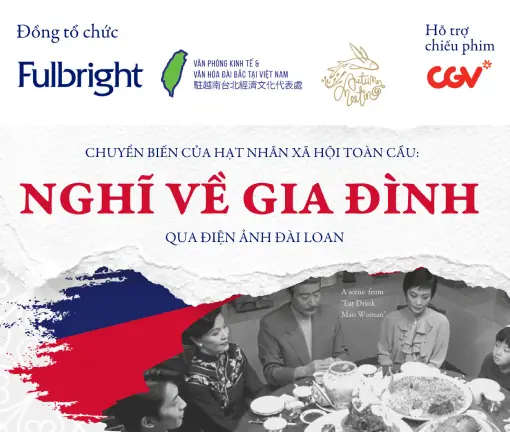
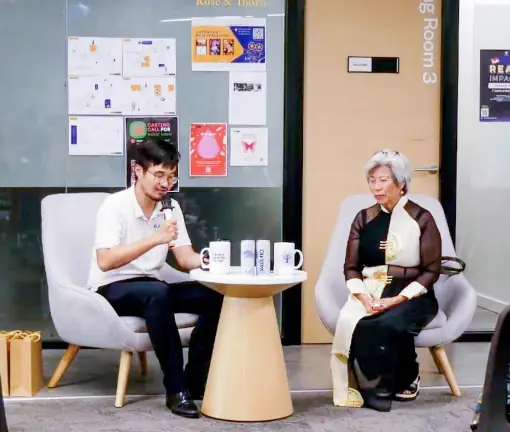
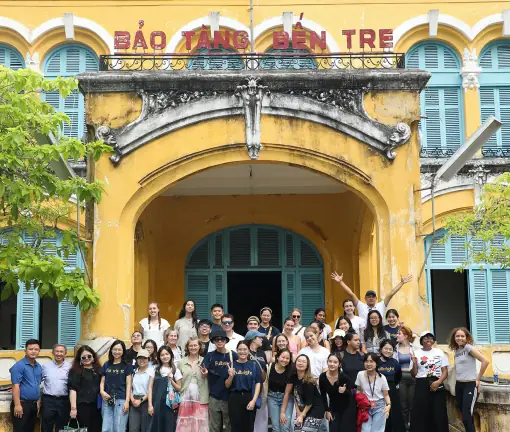
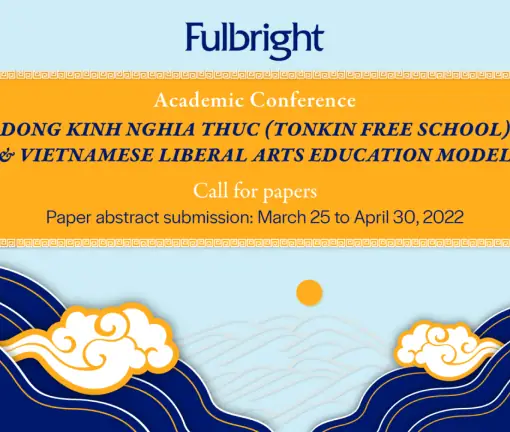
Degree Requirements
Students will earn a Bachelor of Arts (BA) degree in Vietnam Studies after successfully completing the following courses:
General education:
- 5 Core courses (20 credits) and 8 Exploratory courses (32 credits), of which up to two Exploratory courses (8 credits) can be counted towards the major.
- 1 Capstone Seminar (2 credits, optional for CO 2023, compulsory from CO 2024 onwards) and Experiential Learning (4 – 12 credits).
Regular Major Requirements:
- 1 Theory & Methods in Vietnam Studies (previously: Introduction to Vietnamese Studies) (4 credits).
- 2 Foundation Courses (8 credits; both courses can also fulfill the Exploratory courses requirement).
- 1 Introductory Language Course (exempted if student can demonstrate CEFR A1 or equivalent proficiency with a valid certificate or through examination) (4 credits).
- 1 Intermediate Language Course (exempted if student can demonstrate CEFR A2 or equivalent proficiency with a valid certificate or through examination), OR 1 Intermediate Course (4 credits).
- 2 Intermediate Courses (8 credits).
- 2 Advanced (300 Level) Courses (8 credits).
- ONE of the following options:
- 2 additional Advanced Courses (300 level) (8 credits); OR
- Fulfill 8 additional credit hours of experiential learning (8 credits); OR
- 1 Advanced Course (300 level) and 4 additional experiential learning credit hours (8 credits)
- 1 Capstone Seminar (2 credits, optional for CO 2023, compulsory from CO 2024 onwards)
- 1 Elective course at any level in Vietnam Studies (4 credits)
- 1 Advanced Course (300 level) (4 credits)
Sample Student Journey:
- Core Courses
- Exploratory Courses
- Foundation Courses
- Beginner
- Language Course
- Core Courses
- Exploratory Courses
- Theory & Methods in Vietnam Studies Intermediate
- Language Course/ Course
- Intermediate Courses
- Electives
- Capstone Seminar (for students doing a Capstone Project)
- Experiential Learning
- Intermediate Course
- Advanced Courses
- Electives
- Advanced Course
- VS Elective Course
- Capstone I (for Honors)
- Capstone II (for Honors)
Minor Requirements
VNS requires students to complete six courses:
- 1 Theory & Methods in Vietnam Studies (4 credits)
- 1 Introductory Language Course (exempted if student can demonstrate CEFR A1 or equivalent proficiency with a valid certificate or through examination) (4 credits)
- 1 Foundational Course (4 credits)
- 2 Intermediate Courses (4 credits)
- 1 Advanced (300-level) Course (4 credits)
Trained in sharpening their critical thinking, problem-identifying and solving skills, VNS Minors will be equipped with transdisciplinary knowledge of Vietnam in regional and global contexts, together with skills in foreign language and digital humanities. This will help them become more competitive in any working environments that require a multidimensional understanding of Vietnam.
Requirements for Declaring the Vietnam Studies Major and Minor
To formally declare Vietnam Studies as their major, the student must complete the core courses, two foundation courses, and one intermediate course, plus one language course.
To formally declare Vietnam Studies as their minor, the student must complete the core courses, one foundation course, and one language course.
Graduation with Honors Requirements
- Minimum GPA Threshold by Summer of a Student’s Third Year.
- Students must complete Capstone I and Capstone II
- The Capstone must be graded as Honors pass
Sample course list
Theory & Methods in Vietnam Studies (previously: Introduction to Vietnamese Studies) (4 credits): This required course introduces students to several crucial aspects of Vietnamese Studies as an interdisciplinary field and a part of regional studies. Students will first learn what “transdisciplinarity” and “area/regional studies” are, what regional studies we are talking about when talking about Vietnam, and why they are playing important roles in our understanding of the country and its people. Key concepts in social sciences and the humanities (such as “society,” “culture,” “nation and state,” or “globalization”) will be discussed to create a basic theoretical foundation for further understanding of “Vietnam.” Students will have the opportunity to examine a number of case studies, approve or question their research outcomes with a critical mind. Students will also have a chance to learn about local studies, recognizing the importance of the studies of urban centers and rural areas, such as Ho Chi Minh City (formerly, Saigon), Hue, Hanoi, or the Mekong Delta that will enrich their comprehension of those places in particular, and of Vietnam in general. Web-based talks and conversations with representative scholars in Vietnamese Studies from North America, Europe, East and Southeast Asia will help students recognize the global aspects of this fascinating academic field. A wide array of (re)sources for study and research will be introduced. At the end of the course, students are encouraged to work out a research topic of their choice supported by a preliminary bibliography. This course is open to VNS majors and non-majors.
Foundation Courses: With interdisciplinary approaches, foundation courses further familiarize students with local studies, allowing them the chance to learn more about Vietnam:
- How to become a writer: lessons from Vietnamese and non-Vietnamese writers
- Introduction to Comparative Politics: Bringing in Vietnam
- Cultural and Intellectual Foundation of Vietnamese Literary Chinese I
- Documentary Films from Vietnam: History, Theory, and Practice
- Literacy upon Image and Moving Image: Examples from Vietnamese and International Cinema
- Analysis of Vietnamese identities through contemporary Vietnamese cinema
- Introduction to Champa and Khmer History
- Digital Humanities in Vietnam Studies Contexts I
- Modern East Asia
Intermediate Courses: As students have been equipped with some theoretical approaches, foundational knowledge of Vietnam and its regions, language, and professional skills (such as oral history interview skills), intermediate courses deeper focus on close-readings and critical interpretation of “broadly defined texts.” Here are some examples:
- Going Hand in Hand: Politics and Economic Development in Contemporary Vietnam
- Vietnamese Cinema from Its Beginning to Present: Tendencies, Operating Mechanism
- The Challenge of Change: Civil Society and Social Movements in Vietnam
- The Legacy of the War in Retrospect I
- Cultural and Intellectual Foundation of Vietnamese Literary Chinese II
- Digital Creative Writing: Lessons from Vietnamese and Non-Vietnamese Writers
- Ethics in Practice: Philosophical Buddhist Ethics
- What Movies Show and Don’t Show: Film Adaptations in Asian Contexts
- Modern Vietnam and Its Neighbors: Vietnam Diplomatic History
- Developing Vietnam: History, Environment, and Culture
- Digital Humanities in Vietnam Studies Contexts II
- Contending Theories of International Relations: A Comprehensive View of Vietnam and the World
- Visualizing Vietnam
A History of ASEAN - Global Vietnam War I
- Global Vietnam War II
- Literature and Film of the Vietnamese Diaspora
- Gender and War Studies: The U.S.-Vietnam War
- Power, Personhood, and Place in Mainland Southeast Asia
- Development from Below: Indigenous paths to modernity in Vietnam
Advanced (300-level) Courses: Based on their academic interests, students will take three courses belonging to a specific discipline to claim their concentration. Here are some examples of courses that have already been taught:
- Evolution of Vietnamese Society in the 20th century from a multidisciplinary perspective
- Sources of Southeast Asian History
The Legacy of the War in Retrospect II - “All the World’s a Stage”: Performance Studies in Vietnam
- Researching and Writing Vietnamese Diplomatic History
- Vietnamese Republicanism
- History of International Communism
Capstone (8 credits): The Capstone Project offers students an excellent opportunity to conduct a year-long research and present it either as an individual thesis or a group-project work. Taking Vietnam as the center, this senior project can deal with a variety of issues (re)discovered in contemporary Vietnam thanks to new documents and/or new research methods. Students can employ transdisciplinary approaches for individual capstones, or a transdisciplinary teamwork of a group of students (whose disciplinary focuses are different) for group-project capstones. The Capstone Project can be presented in “traditional” format (i.e., written thesis), or multimedia-based product.
Theory & Methods in Vietnam Studies
Foundation Courses (2 required)
Foundation Courses:
- How to become a writer: lessons from Vietnamese and non-Vietnamese writers
- Introduction to Comparative Politics: Bringing in Vietnam
- Cultural and Intellectual Foundation of Vietnamese Literary Chinese I
- Documentary Films from Vietnam: History, Theory, and Practice
- Literacy upon Image and Moving Image: Examples from Vietnamese and International Cinema
- Analysis of Vietnamese identities through contemporary Vietnamese cinema
- Introduction to Champa and Khmer History
- Digital Humanities in Vietnam Studies Contexts I
- Modern East Asia
Introductory Language Course* (1 required)
Intermediate Language Course** OR Intermediate Course(1 required)
Intermediate Courses (200-level):
- Going Hand in Hand: Politics and Economic Development in Contemporary Vietnam
- Vietnamese Cinema from Its Beginning to Present: Tendencies, Operating Mechanism
- The Challenge of Change: Civil Society and Social Movements in Vietnam
- The Legacy of the War in Retrospect I
- Cultural and Intellectual Foundation of Vietnamese Literary Chinese II
- Digital Creative Writing: Lessons from Vietnamese and Non-Vietnamese Writers
- Ethics in Practice: Philosophical Buddhist Ethics
- What Movies Show and Don’t Show: Film Adaptations in Asian Contexts
- Modern Vietnam and Its Neighbors: Vietnam Diplomatic History
- Developing Vietnam: History, Environment, and Culture
- Digital Humanities in Vietnam Studies Contexts II
- Contending Theories of International Relations: A Comprehensive View of Vietnam and the World
- Visualizing Vietnam
- A History of ASEAN
- Global Vietnam War I
- Global Vietnam War II
- Literature and Film of the Vietnamese Diaspora
- Gender and War Studies: The U.S.-Vietnam War
- Power, Personhood, and Place in Mainland Southeast Asia
- Development from Below: Indigenous paths to modernity in Vietnam
Intermediate Courses (2 required)
Intermediate Courses (200-level):
- Going Hand in Hand: Politics and Economic Development in Contemporary Vietnam
- Vietnamese Cinema from Its Beginning to Present: Tendencies, Operating Mechanism
- The Challenge of Change: Civil Society and Social Movements in Vietnam
- The Legacy of the War in Retrospect I
- Cultural and Intellectual Foundation of Vietnamese Literary Chinese II
- Digital Creative Writing: Lessons from Vietnamese and Non-Vietnamese Writers
- Ethics in Practice: Philosophical Buddhist Ethics
- What Movies Show and Don’t Show: Film Adaptations in Asian Contexts
- Modern Vietnam and Its Neighbors: Vietnam Diplomatic History
- Developing Vietnam: History, Environment, and Culture
- Digital Humanities in Vietnam Studies Contexts II
- Contending Theories of International Relations: A Comprehensive View of Vietnam and the World
- Visualizing Vietnam
- A History of ASEAN
- Global Vietnam War I
- Global Vietnam War II
- Literature and Film of the Vietnamese Diaspora
- Gender and War Studies: The U.S.-Vietnam War
- Power, Personhood, and Place in Mainland Southeast Asia
- Development from Below: Indigenous paths to modernity in Vietnam
Advanced Courses (2 required)
Advanced Courses (300-level):
- Evolution of Vietnamese Society in the 20th century from a multidisciplinary perspective
- Sources of Southeast Asian History
- The Legacy of the War in Retrospect II
- “All the World’s a Stage”: Performance Studies in Vietnam
- Researching and Writing Vietnamese Diplomatic History
- Vietnamese Republicanism
- History of International Communism
Major Requirement (2 required)
Major Requirements:
- Elective course at any level in VS (1 required)
- Advanced course (1 required)
Capstone I & Capstone II*** (2 required)
*exempted if student can demonstrate CEFR AI or equivalent proficiency with a valid certificate or
through examination
**exempted if student can demonstrate CEFR A2 or equivalent proficiency with a valid certificate or
through examination
Meet our faculty
Featured faculty
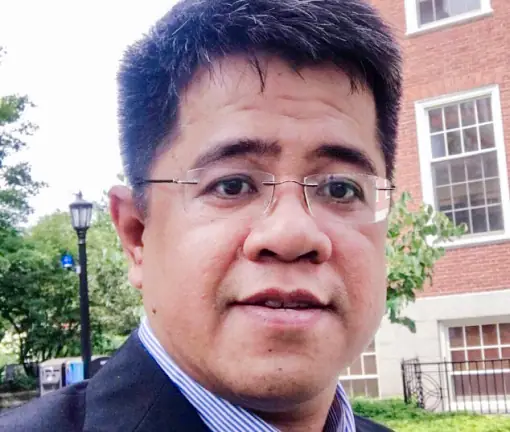
Meet our Fulbrighters
Featured student

- Từ Minh Duy
- Nguyễn Trần Phương Linh
- Đặng Thị Thảo Nguyễn
- Nguyễn Hà Mỹ Tâm
- Huỳnh Thị Mỹ Lâm
- Quách Minh Phát
- Đồng Thị Hải Yến

Meet our Alumni
Come and learn how Fulbright has impacted the lives of our current students and graduates.
Featured alumni
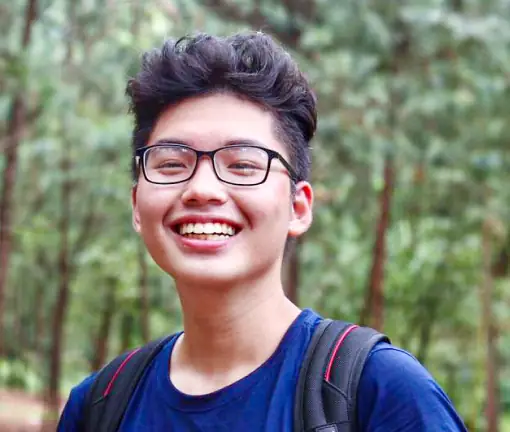
Selected Faculty Publications
“A Vietnamese Reading of the Master’s Classic: Phạm Nguyễn Du’s Humble Comments on the Analects – As an Example of Transformative Learning,” in Roland Reichenbach and Duck-Joo Kwak, eds. Confucian Perspectives on Learning and Self-Transformation – International and Cross-Disciplinary Approaches, Cham, Switzerland: Springer, 2021.
Nguyễn Thành Trung (co-authored). Sức Mạnh Mềm của Trung Quốc trong cạnh tranh chiến lược với Mỹ ở khu vực Ấn Độ Dương – Thái Bình Dương: Tác động và Hàm ý với Việt Nam. Nhà Xuất Bản Chính Trị Quốc Gia Sự Thật, 2022.
Capstone projects
Events and News








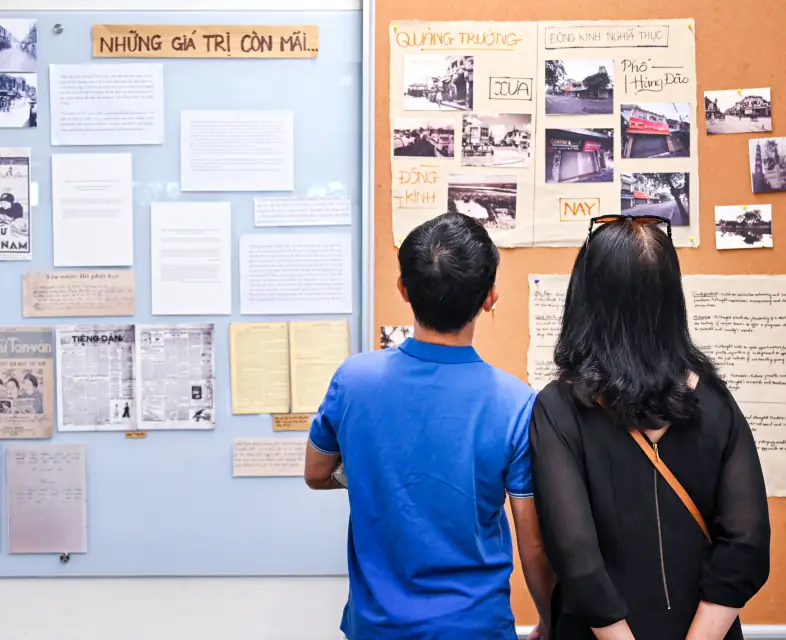





 Theory & Methods in Vietnam Studies
Theory & Methods in Vietnam Studies